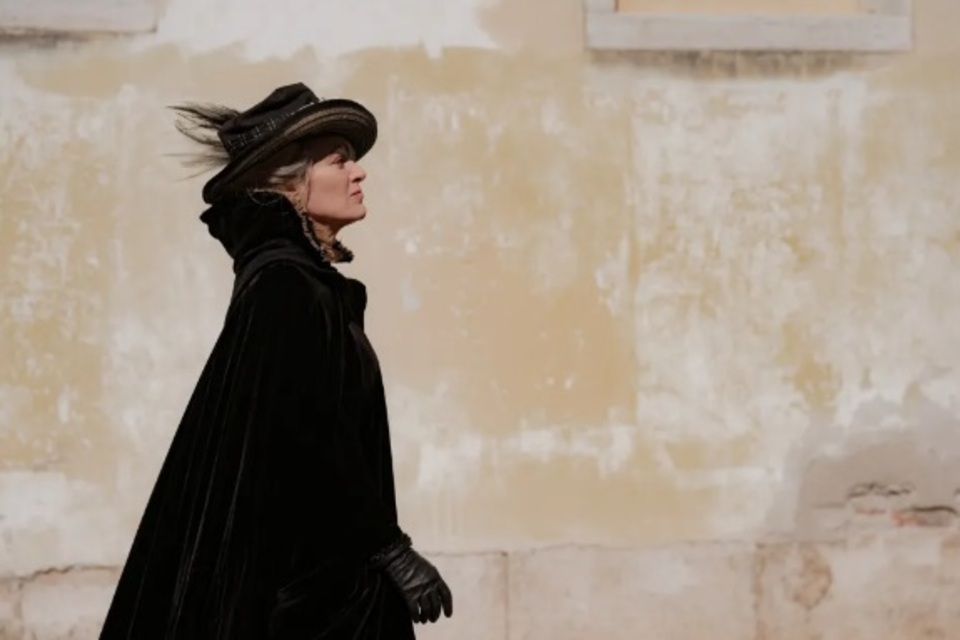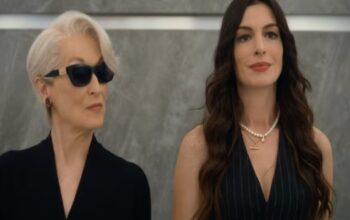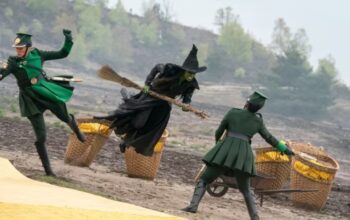For Italian auteur Pietro Marcello, Valeria Bruni Tedeschi was the only actress who could play Eleonora Duse in his biopic of the legendary stage diva, which just launched in competition at the Venice Film Festival.
In “Duse,” Marcello — whose 2019 film “Martin Eden” made a splash on the international arthouse scene — looks at the latter part of the icon’s life, when at 60, she is forced by financial issues to come out of retirement and return to the stage.
Duse, who lived between 1858 and 1924, was considered by many the greatest actress of her time. She performed in many countries, most notably in plays by Gabriele D’Annunzio, her one-time lover who wrote four works specifically for her, and Henrik Ibsen.
Below, Bruni Tedeschi and Marcello speak to Variety about why Duse’s free spirit and non-conventional feminism, coupled with her talent, are so relevant today.
Pietro, simply put: what drew you to Eleonora Duse?
Pietro Marcello: Most of all, I was fascinated by this rebellious character, especially given that she is a woman in an era where women were relegated to passive roles because it was primarily a male world. I was fascinated by her strength, energy and innate, intrinsic talent.
It came about somewhat by chance. Our screenwriter Guido Silei, who had been working on it for a while, reached out to me and I immediately thought of Valeria. The screenplay was written for Valeria. What interested me was Duse’s spirit. Who were we to tell her story, when we didn’t even know the sound of her voice? The only recording of her voice got lost. We had lots of photographs. But I was interested in capturing her spirit through Valeria, who is the most Duse-like actor of them all. The film was made in a state of grace. We had lots of fun because Valeria is also a director.
Valeria, why is it important to revive Eleonora Duse, and that period of her life, roughly 100 years after she passed away?
Valeria Bruni Tedeschi: I think it’s always important to talk about characters who pursue freedom. For a great part of her existence, in her life and in her art, Duse was a free woman. She was free to stop acting and to start again. She went her own way freely. Her quest for freedom, to me, means free thought, not just action. For example, she was a great feminist. But she wasn’t ideological. She wasn’t boxed in by any of the [dogmatic] feminist thinking of that era. She had her own personal brand of feminism; she was free in her thinking. I find all this very important today, because I find that we are in a world that is not free. Therefore it seems to me that, in this sense, this is a rebellious film that goes against the grain.
This is the role of a lifetime. How did you prepare?
Bruni Tedeschi: I tried to not tell myself it was the role of a lifetime. Otherwise I wouldn’t have been able to do it. Instead, I told myself that I wanted to meet Eleonora Duse, the same way I could meet a stranger on a train. By that I mean, talk to her and slowly get to know her and say, “Oh yes, I know what that’s like!” Or “No, I’ve never experienced that.” So I wanted to go on this little train ride with her and become her friend.









